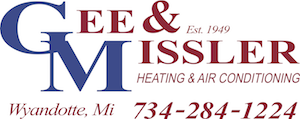
Have you ever performed a double take when you viewed your last energy bill? While high energy bills can be the end result of extreme weather events, repeatedly high bills can often signify an inefficient HVAC system or your home is wasting energy through other means, like drafty windows or inadequate insulation.
An easy way to figure out whether your home is wasting energy is by calling a home service specialist to complete a home energy audit, also referred to as a home energy assessment. Keep reading to learn all about home energy audits, including what they are and their key elements.
What Is a Home Energy Audit?
An energy audit is a thorough inspection of how much energy your home consumes and whether – and where – your home may be losing or wasting energy. An inspector will take a look at older energy bills while completing an energy audit to determine where energy is being consumed and how much.
The overall goal of an energy audit is to help homeowners save money on their energy bills by identifying energy-efficient renovations, which may include replacing your existing HVAC system, installing new insulation, sealing up leaks, or replacing loose windows.
During the energy assessment, the auditor carries out an inspection of the outside and inside of your home. The auditor completes a blower door test on doorways, windows and fireplaces to figure out if there are air leaks in your home. They’ll also check your home’s HVAC system, including the ductwork, the water heater, and the insulation in your attic. Comprehensive assessments could also include checking your current lighting system.
Benefits of a Home Energy Audit
It can be hard for the average homeowner to be sure how efficient their home is versus other similar homes in their neighborhood. However, many energy companies often supply information about where your home ranks when compared with similar homes and whether it’s more efficient, about average, or inefficient versus your neighbors’ homes. This is a great starting point to decide if you need an energy audit performed.
Several of the benefits of a home energy audit include:
Learning How Efficient Your Home Is
It’s beneficial to understand how efficient your home is and where you’re using the most energy. For example, if your ducts are leaking, it will cause a sizable increase in your energy bills and excessive wear and tear on your HVAC system because it has to work longer to completely heat or cool your home.
Making Energy-Efficient Updates
An energy audit will expose where you need to make energy-efficient improvements to cut back on energy and reduce utility bills. This might include replacing worn-down weatherstripping or getting a new energy-efficient furnace.
Improving Health and Safety
Allowing air to leak into your home via doors and windows, or as a result of a lack of insulation can cause unwanted moisture to build up, which could negatively affect your home’s humidity levels or encourage mold. This can lead to health conditions, especially for people suffering from asthma or allergies.
Raising Your Home’s Retail Value
Energy-efficient homes are sought after by homebuyers. You can sell your home more quickly or for more money by showing prospective buyers that it’s energy efficient.
How to Complete an Energy Audit of Your Home
Although performing an energy audit on your own might not be as detailed as calling a professional, it’ll give you a general understanding of how energy efficient your home is. If you don’t discover any problems during the DIY test, then you potentially don’t need to call in a professional. Use this step-by-step checklist:
- Examine your HVAC system. Damaged ducts can lose nearly 20% of conditioned air, contributing to steeper energy bills and excess wear and tear on HVAC equipment. If you find leaks, use duct tape to close them. If your HVAC equipment is old and wearing down, upgrading to a new system can save you a substantial amount on your energy bills. In some cases, it can be better to hire a reputable HVAC company to inspect your system.
- Watch for signs of air leaks. Air leaks on average can increase monthly energy bills by 10 to 20%. Inside, look for air leaks in areas where there could be a draft, such as along the edge of flooring and near baseboards and electrical outlets. Outside, you can inspect for air leaks around the home’s foundation, siding and mortar. Plug, caulk or seal any air leaks to save money.
- Inspect insulation. If your home is older, it could mean your insulation is too. If you can see the joists, you likely need more insulation.
- Check the ventilation. Ensure that all of your kitchen and bathroom exhaust fans are spinning properly, and look for evidence of rot or moisture.
Contact Gee & Missler Heating & Air Conditioning for a Professional Energy Audit
If you would like professional help finding out how energy efficient your heating and cooling equipment is, call the HVAC pros at Gee & Missler Heating & Air Conditioning today. We’ve proudly served the residents of Wyandotte with quality home services for years. Contact us today to set up an appointment.


